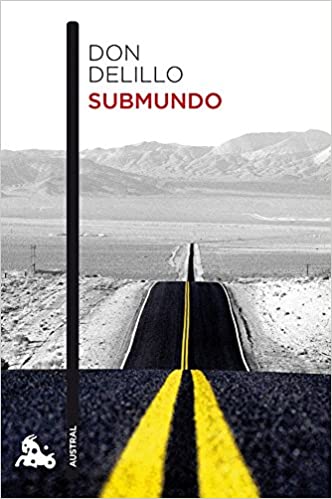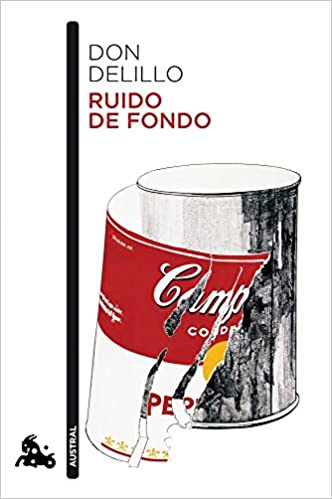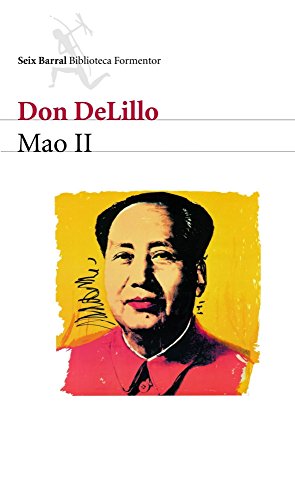What of Don DeLillo it is an exceptional case within the world literary panorama. Without a doubt we are before an existentialist, critical, profound, anthropological, sociological author.
But to fit your claim ever momentous narrative, DeLillo deals with disguising his novels under different appearances of genres as disparate as science fiction in its dystopian aspect or a subversive realism around different currents or groups that, in their dissonance, provide new perspectives on the world, on the times lived on. all in a twentieth century full of conflicts, estrangement, paradoxes between the long-awaited hope of social well-being and nature in the destructive practice of a human being governed by ambitions and fears.
In a way DeLillo abounds in the general misalignment that American writers contemporaries reported in pioneer pens as considerable as Bukowski o Kerouac and his excuse is completely lost.
But DeLillo does not share the same defeatism. The paradox made narrative manifest in DeLillo points more to criticism and a transforming intention.
Works of such considerable magnitude as Underworld are directed more to the dissemination in a twentieth century that was fading, from the sum of a fascinating cosmos of characters than to the mere formal recreation of disenchantment.
Top 3 recommended books by Don DeLillo
Underworld
Around a thousand pages for a new odyssey of survival through a twentieth century oriented towards the slogan of happiness from the paradoxical feeling of the loss of autonomy.
It seems that Nick and Clara are going to tell us their impossible love story. But what ends up being impossible is knowing how it got there. The years lived by strange lovers are immersed in the days of wine and roses of an American society anesthetized by that growing ego that pacified consciences in the face of internal and external conflicts.
In the United States, this amalgam of cultures united by the firm belief in a flag is still an ideological utopia in which disparate social conceptions end up waving.
So that so many ways of seeing the world end up being united with that love for the flag, the trompe l'oeil over which the flag flies must end up disintegrating into strange contradictory surrenders.
The benefits of one thing and its opposite. To cover this need for the dispersed, the story ends up becoming a chorus of many new characters and the narrative thread seems to blur at times. But that is precisely what makes the whole a fascinating work to which limits are hardly found.
Background noise
One of those dystopian combinations, in the style of Margaret Atwood with his tale of the maid. Of course, when a realistic author like DeLillo rocks in a science fiction setting it ends up being to relate aspects that, thanks to that extreme setting, perfectly serves the cause of introspection on philosophical aspects in a dynamic setting that streamlines the plot of parallel way.
On this occasion, a gas leak from a large industry looms over the city of Professor Jack Gladney, a paradoxical student of Hitler.
The truth is that the life of Jack and his family seemed already sifted by another type of black cloud, that of that alienation from routine that adds lives in a roulette of days towards nonsense.
The accumulation of the two black omens, that of a family on the edge of its own abyss and the sudden chemical threat leads the Gladneys to that new scenario in which survival rekindles lost sensations with the radical feeling that the incorporation of the new Fear of prior alienation can morph into anything like the strange chemistry of the world.
Mao II
Undoubtedly, Bill Gray was wrong on the stage on which to write his impossible novel, the one for which he is unable to find a plot in his tedious life, full of individual incentives but lacking that ultimate meaning that, in cases of profound people like Billy , they suppose a load hardly surmountable.
His story to tell appears curiously on the other side of the world, in what comes from the crudest Maoism as an emblem of many other populisms grown in the shadow of the need and the mental destitution of so many human beings entrusted to saviors in the face of their fears made phobias and capable of radicalizing them.
At times with that sordid humor, DeLillo becomes a messenger of the future, because in certain aspects of the novel it seems that we read it after events that occurred after it was written in 1991.
But beyond the melting pot of ideas and omens come true, this story progresses around a hopeful intimacy from the character of Bill along with the other vertices of a triangle of strange loves closed by Karen and Scott.




2 comments on "3 best books by Don DeLillo"